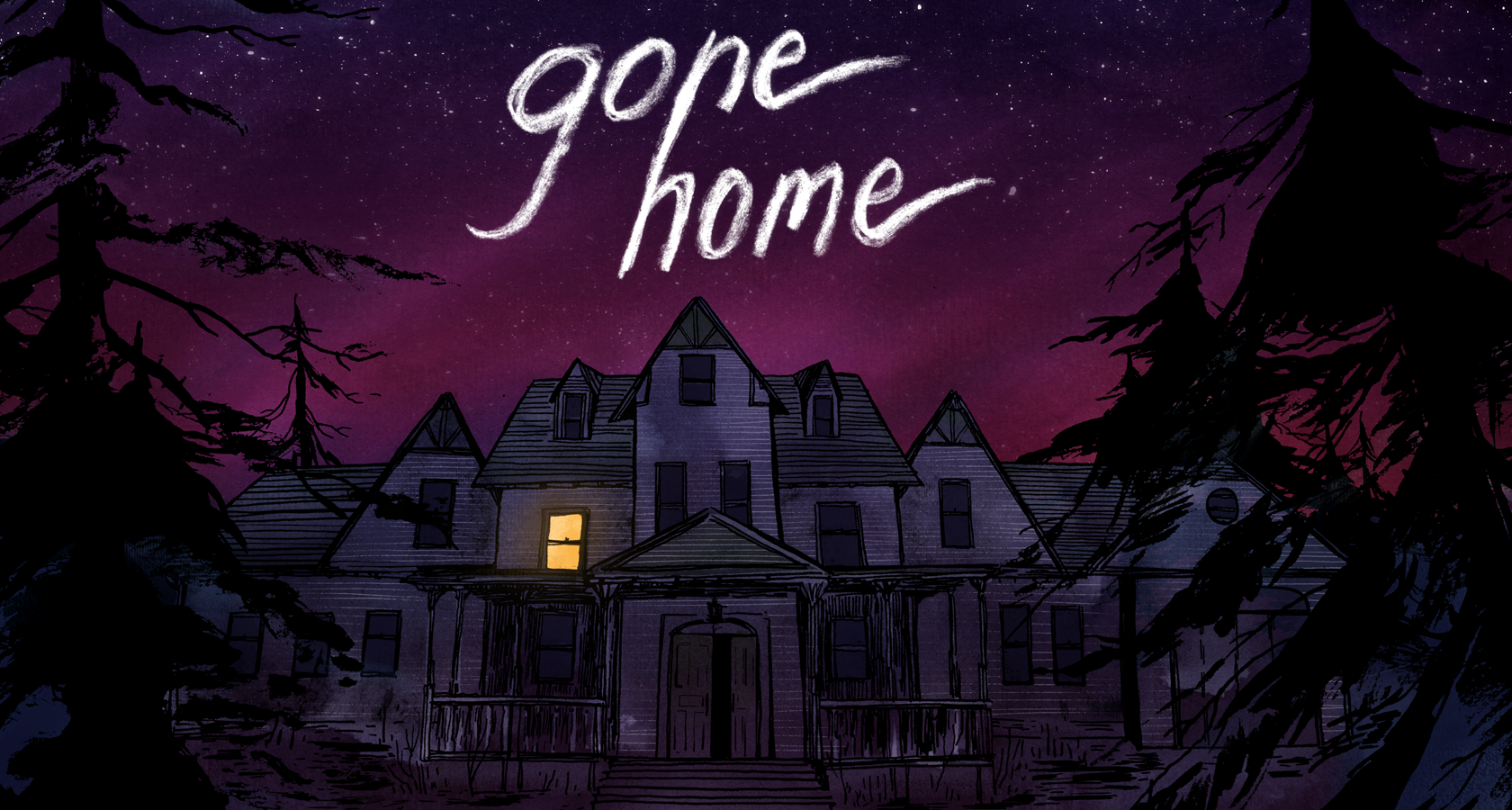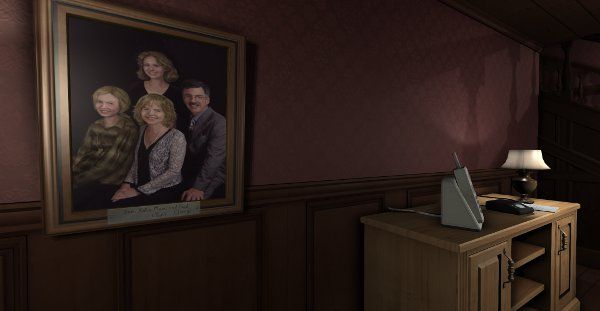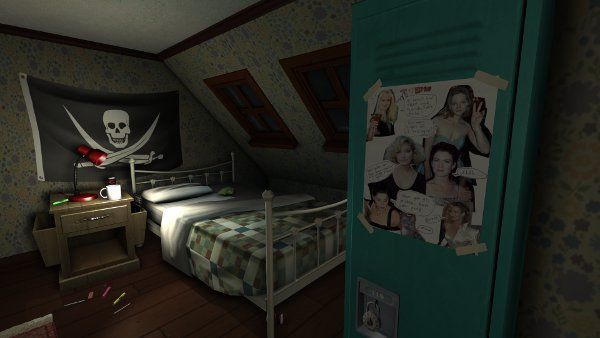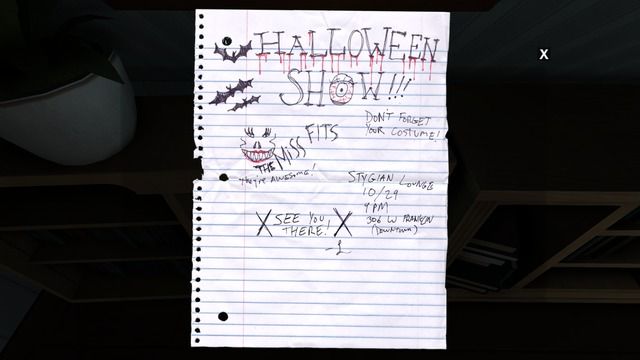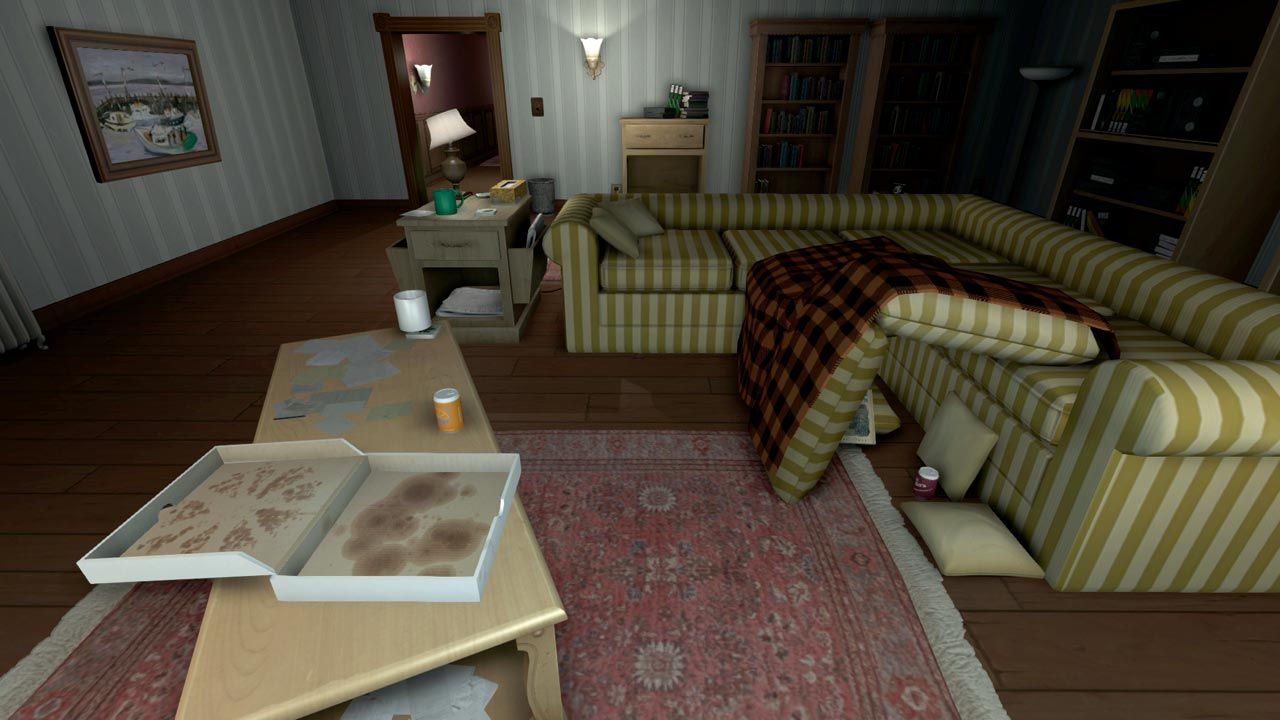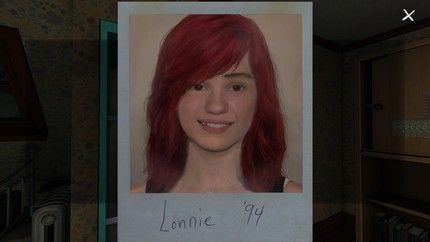The common age-old expression “home is where the heart is” proves to have significant meaning in the furnished hallways and filled cupboards of The Fullbright Company’s debut game, Gone Home. As players are drawn into a night of exploring an empty house and uncovering its many mysteries and stories just waiting to be discovered, Gone Home is a love-letter to lost times and places that provides an incredibly unique and involving storytelling experience, with all of the heart and nostalgia of a return trip to home.
Even in the fluctuating landscape of indie games that aim to push boundaries and innovate, Gone Home holds a unique place in the evolving terms of storytelling in games – The Fullbright Company’s definition of Gone Home as “a story exploration video game” clearly solidifies this. While Gone Home is simple in its mechanics and design, with really the only goal of the game being to explore a vacant house and interacting with various doors and objects, it is exemplary in its storytelling with an emotionally-involving narrative that is subtle, yet continually draws you in not from guided arrows or linear paths, but purely out of human curiosity – an incredibly difficult feat that Gone Home pulls off stunningly.
Taking place in Portland during a stormy night in June 1995, Gone Home sets players in the role of Katie Greenbriar, a young college student returning home after a year abroad in Europe, only to find her family’s newly-purchased home empty and without any immediate indication of their whereabouts. As Katie explores the house for the first time, it becomes the player’s role to investigate the Greenbriars’ home and uncover more than just where her family is, as hidden notes and household objects reveal a much larger tapestry of the Greenbriar family’s story, relationships, and trials as Katie has been away for the past year.
Gone Home is a standout example of “less is more”: while minimal in its story set-up, the game’s intriguing mystery of finding out more about Katie’s family grows increasingly-layered and defined at every new clue or note uncovered. As Katie, players explore the house and its many rooms with complete freedom – there is no specific order that the rooms need to be searched in or any “checklist” of what you need to do next or where you need to go, thankfully letting you seek out more details and clues to your own curiosity’s liking. Naturally though, there are locked doors or areas that need a combination or key to pass through, only encouraging players to look deeper around the house to find access to new rooms or inaccessible areas, and to uncover more details about Katie’s family and leading to the game’s emotional conclusion.
The Greenbriar family members and their own stories in particular stand out just as much as the richly-detailed cupboards and halls of their home. As Katie finds more knick-knacks and objects around the house, along with stray notebooks and journals, so too does the story expand on each family member’s history of where they’ve been and what they’ve been doing in their new home for the past year. From the notes and memos of Katie’s father Terry, an aspiring (but struggling) pulp fiction novelist, to the prominent story of Katie’s younger sister, Samantha, as she goes through life in high school and develops a strongly passionate relationship with a classmate, Gone Home manages impressively to always subvert expectations with every new detail uncovered and developing each character thoughtfully and organically, even in their absence.
Led solely by pure human curiosity, Gone Home pulled me in continually with some of the most emotionally-resonant and involving content that I’ve experienced in a video game. Gone Home easily joins the pantheon of games like Heavy Rain or The Walking Dead for its clear (and genuine) focus on using interactivity to drive storytelling and to build thoughtful and engaging characters – all the more impressive given that none of the characters are even physically seen, aside from a framed family portrait or a stray photo here and there. In its multi-faceted portrait of the Greenbriar family, The Fullbright Company brings moments and insight to Gone Home that touch on a huge range of emotion and experiences that I, and virtually anyone, can relate to either in Sam’s youth or in the adulthood of Katie’s parents: the often-painful trials of high-school life, failure and adulthood strife, the desire for acceptance from family, or the anxiety and joyful intoxication of love.
While Katie’s sister, Sam, narrates various journal entries and letters written to Katie over the course of the game, so too does she describe a year in the Greenbriar family that represents this spectrum of emotions: from difficult and complicated relationships and secrets kept from her family, to her excitement and (often intimate) recounts of her budding romance with her classmate, Lonnie. Even as Katie (and myself) were nervously navigating the hallways of the new house unsure of what was around every corner, Gone Home’s narrative pull always made the game enjoyable for how each item or object uncovered brings in a new detail, both inconsequential or shatteringly prominent, that completely adds to the Greenbriars’ story and fills in their detailed family portrait.
As a video game based entirely around the premise of exploration and interactive storytelling, Gone Home stands in stark contrast to many current games for its striking simplicity in design and gameplay, but succeeds immensely for its emotionally-involving narrative and deep emotional pull. Gone Home, much like any family household, is filled with detail – every shelf and every knick-knack or item holds a story or a significance within The Fullbright Company’s story that made me want to know more about Katie, about her parents, and probably most of all, about Samantha and Lonnie. But, like any forgotten letter or a faded family photo, Gone Home is a special artifact of time and place that is personal and affecting, and a game that should be fondly held onto and cherished.
Gone Home
- Released
- August 15, 2013
- Developer(s)
- Fullbright
- Publisher(s)
- Fullbright
- Genre(s)
- Adventure

